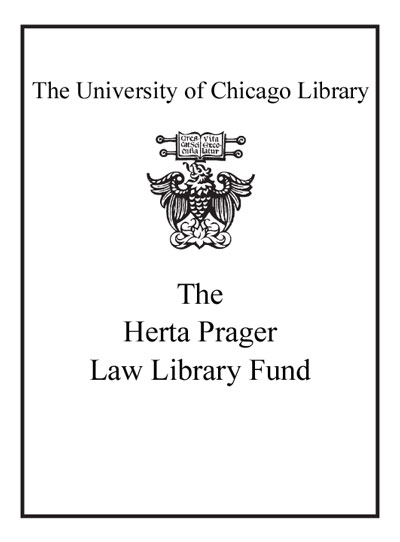Personal injury and damage ascertainment under civil law : state-of-the-art international guidelines /
Saved in:
| Imprint: | Switzerland : Springer International Publishing, [2016] ©2016 |
|---|---|
| Description: | xxxviii, 700 pages : illustrations ; 24 cm |
| Language: | English |
| Subject: | |
| Format: | Print Book |
| URL for this record: | http://pi.lib.uchicago.edu/1001/cat/bib/10925028 |
| Other authors / contributors: | Ferrara, S. D. (Santo Davide), editor. Boscolo-Berto, Rafael, editor. Viel, Guido, editor. |
|---|---|
| ISBN: | 9783319298108 3319298100 |
| Notes: | Includes bibliographical references and index. |
| Summary: | This volume serves to provide an international overview of personal injury compensation in different geographical areas (15 countries already included), with a special focus on the methods used to ascertain the injury and the related damages. It also goes on to clarify the logical and methodological steps required for a sequential, in-depth ascertainment of any traumatic event and the related personal damage, both pecuniary and non-pecuniary. Personal injury is a legal term for an injury to the body, mind or emotions suffered by the plaintiff under tort and/or civil law regulations. Damages related to the injury can be pecuniary or non-pecuniary in nature. Although several comparative studies and research projects on tort and civil law and personal injury claims aimed at developing new tools for promoting harmonization of private law have been performed at an international level, heterogeneity and divergences still exist in the definition and compensation of personal injury and damage across different national legislative systems. The starting point for any awarding procedure should be a medical, or rather a medico-legal, assessment to gain evidence on the trauma or event causing the injury, the mechanism of injury, the pre-existing health status of the injured party, and the health consequences of the injury (temporary and permanent impairment, work incapacity, etc.). In order to pursue the ultimate goal of an international harmonization of personal injury compensation, it is of upmost importance to define the quality requirements for the medico-legal ascertainment methodology, which are essential for guaranteeing the objectivity, rigor, and reproducibility of the data and the evidence collection procedure. Currently, there are no supra-national medico-legal guidelines dealing with the ascertainment methodology of personal injury and damage under tort and civil law. |

Similar Items
-
Personal injury and damage ascertainment under civil law : state-of-the-art international guidelines /
Published: (2016) -
A challenge to the law--personal injuries compensation / y Sir Arthur Owen Woodhouse.
by: Woodhouse, Owen, 1916-2014
Published: (1979) -
Towards a better assessment of pain and suffering damages for personal injuries : a proposal based on quality adjusted life years / Vaia Karapanou.
by: Karapanou, Vaia
Published: (2014) -
Injury and Injustice : the cultural politics of harm and redress /
Published: (2018) -
Medical aspects of personal injury litigation /
Published: (1953)
